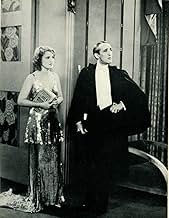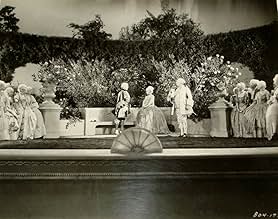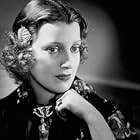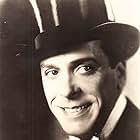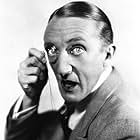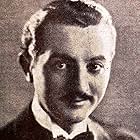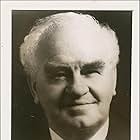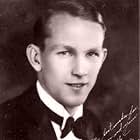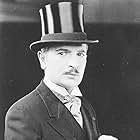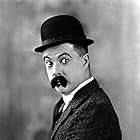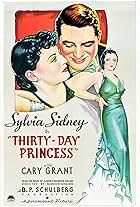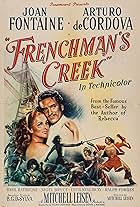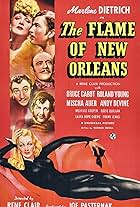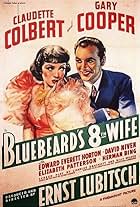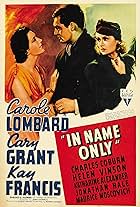IMDb RATING
6.6/10
1.6K
YOUR RATING
A countess flees to Monte Carlo on the day of her wedding, where she is courted by a count posing as a hairdresser.A countess flees to Monte Carlo on the day of her wedding, where she is courted by a count posing as a hairdresser.A countess flees to Monte Carlo on the day of her wedding, where she is courted by a count posing as a hairdresser.
- Awards
- 3 wins total
Max Barwyn
- Frenchman
- (uncredited)
Billy Bevan
- Train Conductor
- (uncredited)
Symona Boniface
- Opera Chorus Singer
- (uncredited)
Sidney Bracey
- Hunchback at Casino
- (uncredited)
John Carroll
- Wedding Guest Officer
- (uncredited)
Margaret Carthew
- Opera Chorus Singer
- (uncredited)
Featured reviews
MONTE CARLO (Paramount, 1930), directed by Ernst Lubitsch, starring Jack Buchanan and Jeanette MacDonald, is a witty, sophisticated musical comedy with continental charm, which at times resembles some of the latter films starring Fred Astaire and Ginger Rogers for RKO Radio. Lubitsch, who had recently scored a big hit with MacDonald in THE LOVE PARADE (Paramount, 1929), once again uses her to good advantage, presenting this promo dona as not only a good singer, but a fine comedienne. Although MacDonald would be charmed by Chevalier's smile in three more musicals, this would be her only venture opposite the British import of Jack Buchanan, whose career in early Hollywood musicals (1929-1930), would be short-lived. Although debonair, he failed to click with American audiences, and would spend most of his career in his native England on both stage and screen. Maybe his occasional but sometimes annoying laugh in this production might have found 1930s audiences finding that he is no threat to Chevalier's charm and smile, but on and all, he gets by. Today, Buchanan is best known for his latter Hollywood role supporting Fred Astaire and Nanette Fabray in the lavish Technicolor 1953 musical, THE BAND WAGON.
The story begins during a rain storm where a wedding is about to take place. The stuffy Prince Otto Von Leibeneheim (Claude Allister), the husband-to-be, is awaiting at the church for his future bride, Countess Helene Mara. As the choir sings, Otto receives a "Dear John" letter from Vera, making this the third time that he has been stood up by her. The next scene finds Vera, still wearing her wedding gown, accompanied by her maid, Bertha (ZaSu Pitts), running to catch the next train. Because she is down to her last francs, she decides to make her next stop to Monte Carlo and try her luck at the gambling tables, with much success. While there, she encounters Count Rudolph Fallieres (Jack Buchanan), a ladies man who becomes interested in her. Feeling that caressing her hair will bring him luck at the gambling tables, Rudy succeeds in keeping his identity a secret and getting her to hire him as her hairdresser, later promoted to be her personal servant and chauffeur. Eventually love blossoms, until Prince Otto locates her.
Being mainly a production that consists only of singing, with music and lyrics by Richard Whiting, W. Franke Harling and Leo Robin, the tune fest musical program is as follows: "Day by Day" (sung by church choir); "She'll Love Me and Like It" (sung by Claude Allister and wedding guests); "Beyond the Blue Horizon" (sung by Jeanette MacDonald); "Give Me a Moment Please" (sung by Jack Buchanan and Jeanette MacDonald); "Trimmin' the Women" (sung by Buchanan, Tyler Brooke and John Roche); "Whatever It Is, It's Grand" (sung by Buchanan and MacDonald); "She'll Love Me and Like It" (reprise by Claude Allister, sung by MacDonald); "Always in All Ways" (sung by Buchanan and MacDonald); "Give Me a Moment Please" (reprise by Buchanan); "Always in All Ways," "Monsieur Beauclair Opera Sequence" (with selections sung by Donald Novis); and "Beyond the Blue Horizon." In spite of "Beyond the Blue Horizon" being the film's most remembered and admired song, the one that would obviously get an Academy Award nomination had the Best Song category been around in 1930, "Always in All Ways" is also a delightful tune that shouldn't go without mention. It's even the underscore heard during the movie's opening screen credits and closing THE END logo.
MONTE CARLO also includes a running gag throughout the story in which some members of the cast tell each other a riddle: "She comes from a wedding, she has nothing on, she left her husband behind, she has no ticket, she has no idea where she wants to go, and she goes to Monte Carlo. How old is the husband?" Eventually, when this riddle reaches poor Otto, it slowly but finally dawns on him that it's pertaining to Vera and himself when he goes to tell this same riddle to another.
Regardless, MONTE CARLO, looks strictly modern with its lavish sets and advanced camera technique. In fact, it looks even better than the previous Lubitsch/MacDonald collaboration of THE LOVE PARADE or anything else from 1929. The only slow spot is the final ten minutes set during its prolonged opera theater sequence, but otherwise, a grand show not to be missed. If the story and leading man are forgettable, the sequence where MacDonald sings "Beyond the Blue Horizon" from her window of the train while looking at the countryside, with others such as farmers joining in the rendition as the train passes by them, will remain in memory long after the movie is over. Seldom broadcast since New York City's public television showing on WNET's Cinema 13 during the 1980s, MONTE CARLO has turned up on DVD around 2009 before having its long overdue cable television broadcast on Turner Classic Movies (TCM premiere: December 21, 2012). How fortunate that this, among many films of the early sound era, have not to be among the "lost" movies from that bygone era. (****)
The story begins during a rain storm where a wedding is about to take place. The stuffy Prince Otto Von Leibeneheim (Claude Allister), the husband-to-be, is awaiting at the church for his future bride, Countess Helene Mara. As the choir sings, Otto receives a "Dear John" letter from Vera, making this the third time that he has been stood up by her. The next scene finds Vera, still wearing her wedding gown, accompanied by her maid, Bertha (ZaSu Pitts), running to catch the next train. Because she is down to her last francs, she decides to make her next stop to Monte Carlo and try her luck at the gambling tables, with much success. While there, she encounters Count Rudolph Fallieres (Jack Buchanan), a ladies man who becomes interested in her. Feeling that caressing her hair will bring him luck at the gambling tables, Rudy succeeds in keeping his identity a secret and getting her to hire him as her hairdresser, later promoted to be her personal servant and chauffeur. Eventually love blossoms, until Prince Otto locates her.
Being mainly a production that consists only of singing, with music and lyrics by Richard Whiting, W. Franke Harling and Leo Robin, the tune fest musical program is as follows: "Day by Day" (sung by church choir); "She'll Love Me and Like It" (sung by Claude Allister and wedding guests); "Beyond the Blue Horizon" (sung by Jeanette MacDonald); "Give Me a Moment Please" (sung by Jack Buchanan and Jeanette MacDonald); "Trimmin' the Women" (sung by Buchanan, Tyler Brooke and John Roche); "Whatever It Is, It's Grand" (sung by Buchanan and MacDonald); "She'll Love Me and Like It" (reprise by Claude Allister, sung by MacDonald); "Always in All Ways" (sung by Buchanan and MacDonald); "Give Me a Moment Please" (reprise by Buchanan); "Always in All Ways," "Monsieur Beauclair Opera Sequence" (with selections sung by Donald Novis); and "Beyond the Blue Horizon." In spite of "Beyond the Blue Horizon" being the film's most remembered and admired song, the one that would obviously get an Academy Award nomination had the Best Song category been around in 1930, "Always in All Ways" is also a delightful tune that shouldn't go without mention. It's even the underscore heard during the movie's opening screen credits and closing THE END logo.
MONTE CARLO also includes a running gag throughout the story in which some members of the cast tell each other a riddle: "She comes from a wedding, she has nothing on, she left her husband behind, she has no ticket, she has no idea where she wants to go, and she goes to Monte Carlo. How old is the husband?" Eventually, when this riddle reaches poor Otto, it slowly but finally dawns on him that it's pertaining to Vera and himself when he goes to tell this same riddle to another.
Regardless, MONTE CARLO, looks strictly modern with its lavish sets and advanced camera technique. In fact, it looks even better than the previous Lubitsch/MacDonald collaboration of THE LOVE PARADE or anything else from 1929. The only slow spot is the final ten minutes set during its prolonged opera theater sequence, but otherwise, a grand show not to be missed. If the story and leading man are forgettable, the sequence where MacDonald sings "Beyond the Blue Horizon" from her window of the train while looking at the countryside, with others such as farmers joining in the rendition as the train passes by them, will remain in memory long after the movie is over. Seldom broadcast since New York City's public television showing on WNET's Cinema 13 during the 1980s, MONTE CARLO has turned up on DVD around 2009 before having its long overdue cable television broadcast on Turner Classic Movies (TCM premiere: December 21, 2012). How fortunate that this, among many films of the early sound era, have not to be among the "lost" movies from that bygone era. (****)
Monte Carlo fail to attain the rate of other Lubistch musicals like "Love Parade" or "One hour with you".But this is anyway a very cute,funny and surprising movie who contains some great sequences and some holes.A sort of musical "Bluebeard's eight wife".
Jeanette Mac Donald gives one exhilarating performance.She's used to play the noble lady charming and snob and she excels at it.Just watch the scene where she breaks her hair and shut,while crying:"Here!I'm going to the Opera and i'll say to everyone you dressed my hair!" I couldn't stop laughing.
About Jack Buchanan-well,he's not Maurice Chevalier to say the least.He doesn't seem very comfortable with his part.In some scenes (mainly the one where the count and his friends laugh endlessly) he is mechanical and unnatural.He drift from cynic to genuine lover in a very disturbing way. Anyway,it must be said that in certain sequences he's not bad at all.I liked the way he shook his head when Jeanette calls him Rudolph and at the end,when he affect indifference each time the countess looks at him then smile irrepressibly. The supporting cast is excellent but some characters (as the fiancé's father disappear in the middle of the movie and left a strange impression.
The songs are quite good -except the funny but forgettable little number about hairdresser- Jeanette Mac Donald sings the legendary,Lubitsch favorite song "Beyond the blue horizon" and there is a beautiful duo between the two leads "Always in all ways".At a certain moment of the song,you feel an almost palpable atmosphere of joy.
Verdict: "Not bad,not bad at all".Forgive the script's incoherences and Buchanan's weaknesses and enjoy.
Jeanette Mac Donald gives one exhilarating performance.She's used to play the noble lady charming and snob and she excels at it.Just watch the scene where she breaks her hair and shut,while crying:"Here!I'm going to the Opera and i'll say to everyone you dressed my hair!" I couldn't stop laughing.
About Jack Buchanan-well,he's not Maurice Chevalier to say the least.He doesn't seem very comfortable with his part.In some scenes (mainly the one where the count and his friends laugh endlessly) he is mechanical and unnatural.He drift from cynic to genuine lover in a very disturbing way. Anyway,it must be said that in certain sequences he's not bad at all.I liked the way he shook his head when Jeanette calls him Rudolph and at the end,when he affect indifference each time the countess looks at him then smile irrepressibly. The supporting cast is excellent but some characters (as the fiancé's father disappear in the middle of the movie and left a strange impression.
The songs are quite good -except the funny but forgettable little number about hairdresser- Jeanette Mac Donald sings the legendary,Lubitsch favorite song "Beyond the blue horizon" and there is a beautiful duo between the two leads "Always in all ways".At a certain moment of the song,you feel an almost palpable atmosphere of joy.
Verdict: "Not bad,not bad at all".Forgive the script's incoherences and Buchanan's weaknesses and enjoy.
Though a bit flawed, "Monte Carlo" is still one of Ernst Lubitsch's most dynamic and inventive musicals. A follow-up to Lubitsch's delightful "The Love Parade", "Monte Carlo" regains Jeanette MacDonald but unfortunately it lacks Maurice Chevalier whose Gallic, continental charm was one of the things that made "Love Parade" (and also Lubitsch's later sublime musicals - "The Smiling Lieutenant", "One Hour with You" and "The Merry Widow") such a joy to watch.
Still, it has one priceless musical number: Jeanette MacDonald rendition of "Beyond the Blue Horizon" while riding a train - a sequence so inventive and spectacular that you forget the rest of the film. It is powerful enough to make the whole countryside alive with song and elation. The song will stick with you long after you completed watching the film.
Frank Tashlin pays an homage to this sequence in his hilarious 1956 musical "Hollywood or Bust": a number called "A Day in the Country", a duet between Dean Martin and Jerry Lewis.
Still, it has one priceless musical number: Jeanette MacDonald rendition of "Beyond the Blue Horizon" while riding a train - a sequence so inventive and spectacular that you forget the rest of the film. It is powerful enough to make the whole countryside alive with song and elation. The song will stick with you long after you completed watching the film.
Frank Tashlin pays an homage to this sequence in his hilarious 1956 musical "Hollywood or Bust": a number called "A Day in the Country", a duet between Dean Martin and Jerry Lewis.
The 1930s were the era of the screen partnership. If a duo worked in one picture, the rule was to keep them together, turning out hits until the public got bored. But it wasn't always a rule producers were able to stick to. After the massive success The Love Parade, which united stars Maurice Chevalier and Jeanette MacDonald, producer-director Ernst Lubitsch followed up with Monte Carlo, in which MacDonald had to swap the gallic lothario for English fop Jack Buchanan.
Really, it was not so much the sundering of Chevalier and MacDonald that was the problem. MacDonald was a good singer and a decent actress, but there was no unique chemistry between her and Chevalier. No, it is Lubitsch who has been calamitously separated from the French entertainer. In his new breed of operettas for the screen, earliest examples of how we now define the movie musical, Lubitsch's Ruritanian settings and sly humour needed the cheeky continental charm of someone like Chevalier. There is nothing intrinsically wrong with Buchanan – he was witty, graceful, and could be outstanding in the right role (especially The Band Wagon, two decades later) – but he simply doesn't convince as a philandering French count. There may have been some thinking that Buchanan was to stereotypical Englishness what Chevalier was to stereotypical Frenchness. This is quite true, only stereotypical Englishness isn't what's required!
But Lubitsch potters along, honing the formula of the new genre. This time around, the songs are written by Richard A. Whiting and W. Franke Harling. The melodies are neither as sweet nor as memorable as those written by Victor Schertzinger for The Love Parade, the only standout being the popular hit "Beyond the Blue Horizon". However, the lyrics by Leo Robin are great fun, with internal rhyming reminiscent of Lorenz Hart, and a fun and occasionally witty wordplay. What's more Lubitsch and his screenwriter Ernest Vajda have done a more elaborate job of weaving the songs into the story, and the action into the songs. A good example is "Give Me a Moment Please", which is staged as a phone call between MacDonald and Buchanan (funny how Scottish those two sound when their names appear side by side). The song not only relates to the characters and the narrative, but the plot is furthered through the song.
As for merging action and music, there are some nice touches here which we didn't see in The Love Parade. This is not a dance musical, and yet Lubitsch choreographs dances of ordinary gestures for many of the numbers. Sometimes this is rather blunt and abstract, such as the head turning of the crowd in "She'll love me and like it". Other times it is more subtle and natural, as in "Trimmin' the women". In that song, we see little moves like Buchanan, John Roche and Tyler Brooke all crossing their legs simultaneously, and in the second half of the song making a little dance out of an afternoon tea session. Their movements look natural but also have a musical rhythm to them. This is all important development for the genre.
Ultimately though, this is a box of few delights. I'm not blaming it all on Mr Buchanan – he is actually delightful here and there, but he is not able to carry the picture, and the lack of an appropriate lead man shows up the rather lacklustre storyline. The screen musical would continue to develop, and during the 30s it would belong chiefly to the reliable stars who could be associated with a certain formula – Fred Astaire, Bing Crosby, Shirley Temple, Chevalier, MacDonald stars who were draws in themselves and needed no fine drama or creative direction to make a hit.
Really, it was not so much the sundering of Chevalier and MacDonald that was the problem. MacDonald was a good singer and a decent actress, but there was no unique chemistry between her and Chevalier. No, it is Lubitsch who has been calamitously separated from the French entertainer. In his new breed of operettas for the screen, earliest examples of how we now define the movie musical, Lubitsch's Ruritanian settings and sly humour needed the cheeky continental charm of someone like Chevalier. There is nothing intrinsically wrong with Buchanan – he was witty, graceful, and could be outstanding in the right role (especially The Band Wagon, two decades later) – but he simply doesn't convince as a philandering French count. There may have been some thinking that Buchanan was to stereotypical Englishness what Chevalier was to stereotypical Frenchness. This is quite true, only stereotypical Englishness isn't what's required!
But Lubitsch potters along, honing the formula of the new genre. This time around, the songs are written by Richard A. Whiting and W. Franke Harling. The melodies are neither as sweet nor as memorable as those written by Victor Schertzinger for The Love Parade, the only standout being the popular hit "Beyond the Blue Horizon". However, the lyrics by Leo Robin are great fun, with internal rhyming reminiscent of Lorenz Hart, and a fun and occasionally witty wordplay. What's more Lubitsch and his screenwriter Ernest Vajda have done a more elaborate job of weaving the songs into the story, and the action into the songs. A good example is "Give Me a Moment Please", which is staged as a phone call between MacDonald and Buchanan (funny how Scottish those two sound when their names appear side by side). The song not only relates to the characters and the narrative, but the plot is furthered through the song.
As for merging action and music, there are some nice touches here which we didn't see in The Love Parade. This is not a dance musical, and yet Lubitsch choreographs dances of ordinary gestures for many of the numbers. Sometimes this is rather blunt and abstract, such as the head turning of the crowd in "She'll love me and like it". Other times it is more subtle and natural, as in "Trimmin' the women". In that song, we see little moves like Buchanan, John Roche and Tyler Brooke all crossing their legs simultaneously, and in the second half of the song making a little dance out of an afternoon tea session. Their movements look natural but also have a musical rhythm to them. This is all important development for the genre.
Ultimately though, this is a box of few delights. I'm not blaming it all on Mr Buchanan – he is actually delightful here and there, but he is not able to carry the picture, and the lack of an appropriate lead man shows up the rather lacklustre storyline. The screen musical would continue to develop, and during the 30s it would belong chiefly to the reliable stars who could be associated with a certain formula – Fred Astaire, Bing Crosby, Shirley Temple, Chevalier, MacDonald stars who were draws in themselves and needed no fine drama or creative direction to make a hit.
In fact, Monte Carlo is a nice film that left me mostly in a good mood. It does have a few fairly major flaws, starting with Jack Buchanan who is a total charmless wimp of a leading man and his chemistry with Jeanette MacDonald doesn't really convince, Maurice Chevalier would have been a much better fit. The song Trimmin' the Women is forgettable at best and embarrassing at worst, a song that really should have been left on the editing room floor, a shame because there was some clever musical choreography in it. The story also even for a 1930s musical is rather contrived with a few situations stretched to the limits in credibility. And sadly, ZaSu Pitts is wasted and strains for laughs, she's often delightful but her comic talents are just not used very well at all. As ever with an Ernst Lubitsch film Monte Carlo is a lavish-looking film with opulent period detail and attractive cinematography and Lubitsch directs with his usual class and elegant style. The songs, with the exception of one, are lovely and staged in a witty(a couple alternatively intimate) and light as a feather way, the memorable scene being the tear-jerking Beyond the Blue Horizon staged on a moving train. Give Me a Moment Please is very amusing as well and the most story-enhancing of the songs. The dialogue is sweet and funny with some nice interplay between the actors, the supporting performances are solid enough but other than the songs Jeanette MacDonald is the best thing about Monte Carlo. She is effortlessly charming and feisty and her voice while not large is beautiful in tone and shaped with tasteful style and phrasing. All in all, Lubitsch is nowhere near his best here(Heaven Can Wait, the Merry Widow and particularly The Shop Around the Corner are much preferred) but while problematic Monte Carlo is not a bad film at all, lesser Lubitsch but Lubitsch when not on best form is better than most other directors in the same position. 7/10 Bethany Cox
Did you know
- TriviaThe song "Beyond the Blue Horizon," introduced here, became Jeanette MacDonald's theme song for the rest of her life. During World War Ii she changed the line, "Beyond the blue horizon lies the rising sun" to " ... lies the shining sun" because the Rising Sun was the symbol of America's enemy, Japan.
- GoofsJeanette MacDonald is referred to as a blonde early on in the dialogue. She was actually a redhead, and no attempt was made to lighten her hair to make her look blonde. Her hair photographed the dark grey red hair usually reproduced as on the black-and-white film used in 1930.
- Quotes
Train Conductor: Are you the lady who jumped on this train after we had started?
Countess Helene Mara: Yes, and I shall complain about it. Trains don't go until I get on them!
- SoundtracksBeyond The Blue Horizon
(uncredited)
Music by Richard A. Whiting and W. Franke Harling
Lyrics by Leo Robin
Sung by Jeanette MacDonald
Details
Box office
- Budget
- $726,465 (estimated)
- Runtime1 hour 30 minutes
- Color
Contribute to this page
Suggest an edit or add missing content



